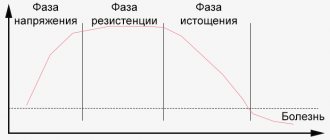Determining Rotter's Locus of Control
What is locus of control? This is a personality trait in which a person explains his successes and failures by the influence of external or internal factors. Translated from French, locus is location, and contrôle is verification. In psychology, the concept of locus of control suggests that people look for the reason for everything that happens either in the environment (a bad streak, fate, the machinations of ill-wishers) or in their inner world. This is how they justify all their actions.
The term was introduced into science by Julian Rotter. That is why the phenomenon is called Rotter's locus of control. It is also called cognitive orientation. It shows whether an individual controls his own life or relies on circumstances.
Why know this?
What practical meaning can be derived from this knowledge? Indeed, at first glance it may seem that the theory is informative and interesting, but nothing more. In fact, determining your locus of control and reconsidering your attitude towards what is happening to you is a powerful tool for self-development.
A superficial analysis can be carried out even without seeking help from the mentioned questionnaires and tests based on them on the Internet. Just try to look at yourself from the outside and evaluate your attitude towards what happened in the near future. For example, you received a D on a test or your boss yelled at you for doing a bad job. What were your next steps? Did you conscientiously learn everything and correct mistakes in your work, because what happened was your fault? Or, cursing the teacher and boss for bias and injustice, did what was necessary “under the lash” just to be left alone? Of course, such options are not mutually exclusive, but in other cases they are less clearly related to locus of control.
Thus, by choosing the right series of questions and answering them honestly, you will receive a ready-made map that can indicate in which direction you should move next and which skills and qualities of your character to develop and which to get rid of. Expressed externality indicates that you need to learn to take responsibility, be more confident and proactive. Establish observation of yourself and everything that happens, learn to see your trace, and not just a coincidence.
Internals should ask themselves similar questions. Their reaction to a shift in locus should be to refuse to control things that do not need control. It is worth recognizing that it is impossible to foresee absolutely everything, much less influence it. Therefore, reproaching yourself every time something goes wrong is a stupid idea and promises depression. Seek harmony!
Forming a locus of control
Several factors influence the development of Rotter's locus of control:
- personality traits of a particular person;
- upbringing;
- historical moment;
- society.
Depending on them, a person develops a passive or active position towards life. In the first case, he believes that nothing depends on him. And in the second, that he can still change something.
According to Julian Rotter, what one's position will be depends largely on how often a person was punished or praised as a child. He put forward this assumption in 1954. So, if after committing any actions an individual heard only reproaches and humiliation, the attitude will appear in his mind: “I can’t do anything, I have no control over what is happening.” The same thing happens if actions do not bring the expected result.
It turns out that upbringing plays one of the main roles in the formation of one or another type of locus of control. There are 2 examples:
- A child growing up in an authoritarian family, in which mom and dad raise him inconsistently, develops external control. Going with the flow is a habit for him.
- Children whose parents were consistent in their upbringing always take responsibility for their actions upon themselves.
And although the locus of control is formed starting in childhood, it can be changed. You can change your destiny in the same way.
Types of locus of control
As stated above, locus of control is divided into external and internal. Each of them has its own characteristics.
External (external)
The external locus of control is also known as external locus of control. This is a state where a person blames external conditions for everything. He believes that his life is predetermined by someone or something. Therefore, his actions will not change either the present or the future. If he managed to successfully cope with the task, that’s how the circumstances developed. And if failures follow, it’s all the stars’ fault.
A person with an external locus of control does not want to be held accountable for their actions. He transfers it to anything. It could be the people around you, the universe, some abstract forces and much more. There are always culprits for what happens. Such individuals are called externals.
Internal (internal)
Unlike the external locus of control, the internal or internal locus of control encourages people to be confident that control over life belongs only to them. If something doesn’t work out, internals look for the reason in themselves, and not in the circumstances. They evaluate their internal state and abilities. If they praise, it is only themselves. They make themselves objects of criticism.
This type of locus of control by J. Rotter in psychology is called average. A person understands that there are factors from whose influence he cannot get rid of. And he accepts them. But at the same time, he leads a fairly active lifestyle and is not afraid to take responsibility and make decisions. As they say, if life gives you lemons, make lemonade out of them.
Attention! There are no 100% pure internals or externals. A person combines both types of locus of control.
In the process of evolution, according to scientists, women have better developed externality. Men are characterized by an internal locus of control.
Internality and externality
"Locus" means "place" in Latin. The external place of control (but they don’t say that, preferring the concepts of “external locus” or “externality”) implies that a person puts everything that happens to him depending on the circumstances. They are predetermined and cannot be changed.
The internal locus or internality suggests that, figuratively speaking, the person himself is the architect of his own happiness. Fate is not something that will definitely happen, but the result of conscious actions, decisions made and a series of choices. And whether they are right or wrong is not the will of chance, but of man.
The difference between these two relationships is clearly visible in practice. For example, people with an external locus blame anyone for their troubles, but not themselves. Low wages, bad work - the government, the country, social conditions are to blame. Internals, on the other hand, tend to blame themselves: I live poorly because I chose the wrong specialty, I am not smart enough to achieve more, etc. We gave this example specifically to show the problem not in the “good-bad” space, but as it really is. External and internal loci in themselves cannot be a completely negative or positive phenomenon. In contrast to the habits and attitude to the surrounding reality dictated by them.
So don’t rush to judge or admire. Rotter created a special questionnaire to determine the locus of control and conducted a series of experiments. For the vast majority of people, this indicator is approximately in the middle - the external and internal loci are developed in a 50/50 ratio.
Lack of clear expression is a characteristic of human nature. Our ability to think will sooner or later rebel if we constantly go with the flow. But we cannot be completely independent of circumstances and other people, no matter how much sociopaths would like it. Based on this state of affairs, the goal for any person who strives for a fulfilling life is to maintain the notorious balance.
Types of people
According to psychologists, a person’s self-esteem is closely dependent on his locus of control. Anyone who constantly controls himself internally knows how to objectively assess his abilities and capabilities. He has a correct awareness of himself as a person. So, internals and externals. How are they different from each other?
Personal maturity
Internal locus of control in psychology is a property of a mature person. He doesn't care what other people think about him. He gives an objective, not subjective assessment of his abilities and capabilities. But in this case it is difficult not to go to extremes.
To stick to the golden mean, set goals that you can definitely achieve. Don't try to change circumstances beyond your control. Otherwise, you are guaranteed to experience disappointment, depression, and apathy. And one more piece of advice - analyze your surroundings. If you see instability, do not make far-reaching plans.
Study methodology
Back in 1966, Julian Rotter developed a technique that allows you to assess a person's locus of control. Many psychologists have tried to modify the test. Today, the classic version and modification of O.P. Eliseev “Cognitive Orientation” is most often used.
Locus of Control Scale
Helps to find out whether a person is internal or external. It also shows how ready he is to see himself, to evaluate his role, successes and failures in a particular area.
The test questionnaire for J. Rotter's locus of control scale contains 44 questions. You must either agree with the statement or refute it.
- Building a career depends on luck, and not on the efforts of the person himself.
- Divorces are a consequence of the fact that partners either do not want or do not know how to compromise.
- Everyone gets sick. It cannot be prevented or predicted.
- Cold, insensitive people are always alone.
- I can realize all my desires if I have luck.
- It is impossible to win sympathy. Whether the person likes you or not.
- Marriage depends on the money and influence of the parents as well as on the spouses themselves.
- I often think that I cannot change anything in my own life.
- The company will develop if all decisions are made by the manager, without relying on the opinions of subordinates.
- When I was at school, my performance did not depend on me, but on external factors, including the mood of the teacher.
- I am confident that I can achieve my plans.
- That I can achieve what I want, carry out all my plans.
- It is better to lead a healthy lifestyle than to go to doctors and take pills.
- If the partners do not agree on their personalities, they need to separate. You can't change anything here.
- My efforts and investments in the business are always appreciated.
- The future of children depends on how their parents raised them.
- There are no happy or unlucky cases, nor does fate.
- In this life, little depends on me, so I don’t make plans.
- While studying at school, my grades depended on my preparation for the lesson.
- When there are quarrels in the family, I consider myself to be to blame, not my partner.
- Most of the people around me are floating with the flow, surrendering to fate.
- I like it when employees can make decisions as well as the manager.
- My illnesses are not a consequence of my lifestyle.
- Mistakes and failures are the result of an unfortunate combination of circumstances.
- A bad manager is the fault of the employees.
- I think that I am unable to change family relationships.
- I just have to want it and I can win the sympathy of absolutely anyone.
- The future life of a child depends not so much on upbringing as on the influence of any external factors.
- Responsibility for everything that happens to me lies solely with me.
- Often I don’t understand why the manager acted this way and not otherwise.
- People who cannot build a career have themselves to blame.
- I know how to get what I need from those around me, including family members.
- Those around me are to blame for my failures.
- Careful child care is protection against many diseases.
- If it's difficult for me, I wait for the problems to be solved on their own.
- Success is not luck or coincidence. This is long, hard work on yourself.
- How happy my family will be depends only on me.
- I sincerely don’t understand why some people like me and others don’t.
- I never ask anyone for help. I always rely on my own strength.
- Often a person's contribution to a particular cause remains underestimated.
- Often, family problems cannot be solved, even if you really want to.
- Responsibility for untapped potential and undeveloped abilities lies with the person himself.
- Most of my victories are thanks to those around me.
- Almost all my failures are my fault, my laziness or lack of knowledge.
Locus of control is a psychological factor that characterizes a particular type of personality. It is a person’s tendency to attribute responsibility for events in life and the results of his activities to external forces (external, external locus of control) or to his own abilities and efforts (internal, internal locus of control).
People with an external locus of control, who are inclined to explain the consequences of their actions by the influence of circumstances, are usually called externalists, since they attribute responsibility for their activities exclusively to external conditions. The opposite type is internals. People of this type consider only themselves responsible for the results of their activities. Even if the circumstances are unfavorable, the internal will not make excuses for mistakes or failures. People with an internal locus of control are more self-confident, consistent and persistent in achieving their goals, balanced, friendly and independent. The tendency to an external locus of control, on the contrary, manifests itself in uncertainty, imbalance, anxiety, suspicion, conformity and aggressiveness. It would seem that the position of externals is more convenient and should provide them with a more favorable position in the social environment. However, numerous psychological observations and experiments have revealed a consistent pattern: internals more often achieve success in creative and professional activities, are less anxious and aggressive, and are able to more staunchly defend their principles than externals. Internals are less suspicious in relationships and more often inspire trust when achieving their goals. “Pure” internals or externals practically do not exist. Every person has a share of confidence in their strengths and abilities, and a share of psychological dependence on circumstances.
Scales: externality, internality
Purpose of testing: identifying the locus of control of respondents.
Test instructions
Read each statement in pairs and decide which one you agree with most. On the answer sheet, circle one of the letters - “a” or “b”.
Stimulus material:
| № | Option "a" | Option "b" |
| 1 | Children get into trouble because their parents punish them too often. | Nowadays, troubles happen to children most often because parents are too gentle with them. |
| 2 | Many failures come from bad luck. | People's failures are the result of their own mistakes. |
| 3 | One of the main reasons why immoral acts are committed is because others tolerate them. | Immoral acts will always happen, no matter how hard others try to prevent them. |
| 4 | In the end, people get the recognition they deserve. | Unfortunately, a person’s merits often remain unrecognized. |
| 5 | The idea that teachers are unfair to students is false. | Many students don't realize that their grades can depend on random circumstances. |
| 6 | The success of a leader largely depends on a successful combination of circumstances. | Capable people who did not become leaders did not use their capabilities themselves. |
| 7 | No matter how hard you try, some people will still not like you. | Anyone who has failed to win the sympathy of others simply does not know how to get along with others. |
| 8 | Heredity plays a major role in shaping human character and behavior. | Only life experience determines character and behavior. |
| 9 | I have often noticed the truth of the saying: “What happens, cannot be avoided.” | In my opinion, it is better to make a decision and act than to rely on fate. ! |
| 10 | For a good specialist, even testing with passion does not present any difficulties. | Even a well-trained specialist usually cannot withstand testing with bias. |
| 11 | Success is the result of hard work and has little to do with luck. | To succeed, you need to seize the opportunity. |
| 12 | Every citizen can influence important things; government decisions. | Society is run by people who are promoted to public positions, and the average person can do little. |
| 13 | When I make plans, I am generally convinced that I can carry them out. | It is not always prudent to plan far ahead because much depends on how circumstances turn out. |
| 14 | There are people about whom we can safely say that they are bad. | There is something good in every person. |
| 15 | Making my dreams come true has nothing to do with luck. | When they don’t know what to do, they toss a coin. In my opinion, you can often resort to this in life. |
| 16 | People often become leaders through a happy coincidence of circumstances. | To become a leader, you need to be able to manage people. Luck has nothing to do with it. |
| 17 | Most of us cannot influence world events in any serious way. | By taking an active part in public life, people can control events in the world. |
| 18 | Most people do not understand how much their lives depend on random circumstances. | In reality there is no such thing as luck. |
| 19 | You should always be able to admit your mistakes. | As a rule, it is better not to highlight your mistakes. |
| 20 | It's difficult to know whether a person really likes you or not. | The number of friends you have depends on how well-liked you are to others. |
| 21 | In the end, the troubles that happen to us are balanced by pleasant events. | Most failures are the result of lack of ability, ignorance, laziness, or all three combined. |
| 22 | If you put in enough effort, formalism and callousness can be eradicated. | There are things that are difficult to fight, so formalism and callousness cannot be eradicated. |
| 23 | Sometimes it is difficult to understand what managers are basing their decisions on when they nominate a person for promotion. | Rewards depend on how hard a person works. |
| 24 | A good leader expects his subordinates to decide for themselves what they should do. | A good manager makes it clear what each subordinate's job is. |
| 25 | I often feel like I have little influence over what happens to me. | I don't believe that chance or fate can play an important role in my life. |
| 26 | People are lonely because they are not friendly to others. | It is useless to try too hard to win people over: if they like you, they like you. |
| 27 | A person's character depends mainly on his willpower, | A person's character is formed mainly in a team. |
| 28 | What happens to me is the work of my own hands. | Sometimes I feel like my life is moving in a direction beyond my willpower. |
| 29 | I often cannot understand why leaders act the way they do. | Ultimately, the people who work in it are responsible for the poor management of an organization. |
Processing and interpretation of test results
Key to the test • Externality: 2a, 3b, 4b, 5b, 6a, 7a, 9a, 10b, 11b, 12b, 13b, 15b, 16a, 17a, 18a, 20a, 21a, 22b, 23a, 25a, 26b, 28b, 29a. • Internality: 2b, 3a, 4a, 5a, 6b, 7b, 9b, 10a, 11a, 12a, 13a, 15a, 16b, 17b, 18b, 20b, 21b, 22a, 23b, 25b, 26a, 28a, 29b. The total and maximum score for internality and externality is 23, since 6 out of 29 questions are background questions. The direction of the locus of control should be judged by the relative excess of the results of one dimension over another. Interpretation of test results In the practice of psychodiagnostics, locus of control is used to judge the cognitive style manifested in the field of learning, including professional learning. Since the cognitive components of the psyche are present in all its phenomena, ideas about the locus of control also extend to the characteristics of the individual in his activities. Externals are characterized by externally directed defensive behavior; they prefer to have a chance of success as an attribution of the situation . In general terms, this indicates that any situation is externally desirable as externally stimulated, and in cases of success, a demonstration of abilities occurs. The externalist is convinced that his failures are the result of bad luck, accidents, and the negative influence of other people. Approval and support for such people are very necessary, otherwise they work worse and worse. However, one should not expect special gratitude for sympathy from externals. Internals most often attribute the situation to the belief that their successes or failures are not accidental, depending on competence, determination, level of abilities and being a natural result of purposeful activity and initiative. In structuring the process of goal formation and its strategies, the leading motivation for internals is the search for ego identity, independently and orthogonally in relation to extroversion or introversion. Due to greater cognitive activity, internals have broader time perspectives, covering a significant variety of events in both the future and the past. At the same time, their behavior is aimed at consistently achieving success through the development of skills and deeper processing of information, setting tasks of increasing complexity. The need for achievement, therefore, tends to increase, associated with an increase in the values of personal and reactive anxiety, which is a prerequisite for possible greater frustration and less resistance to stress in cases of serious failures. However, in general, in real, externally observable behavior, internals give the impression of being quite confident people, especially since in life they often occupy a higher social position than externals, as J. Digman, R. Cattell and J. Rotter believe. For externals, a connection is found with emotional instability and practical, unmediated thinking; for internals, emotional stability and a tendency to theoretical thinking, abstraction and synthesis of ideas are noted. In general, in accordance with the relationship between the parameters of activity and reactivity (and in connection with motivation for achievement and attitude), the vector of externality-internality coincides with the vector of reflection.











